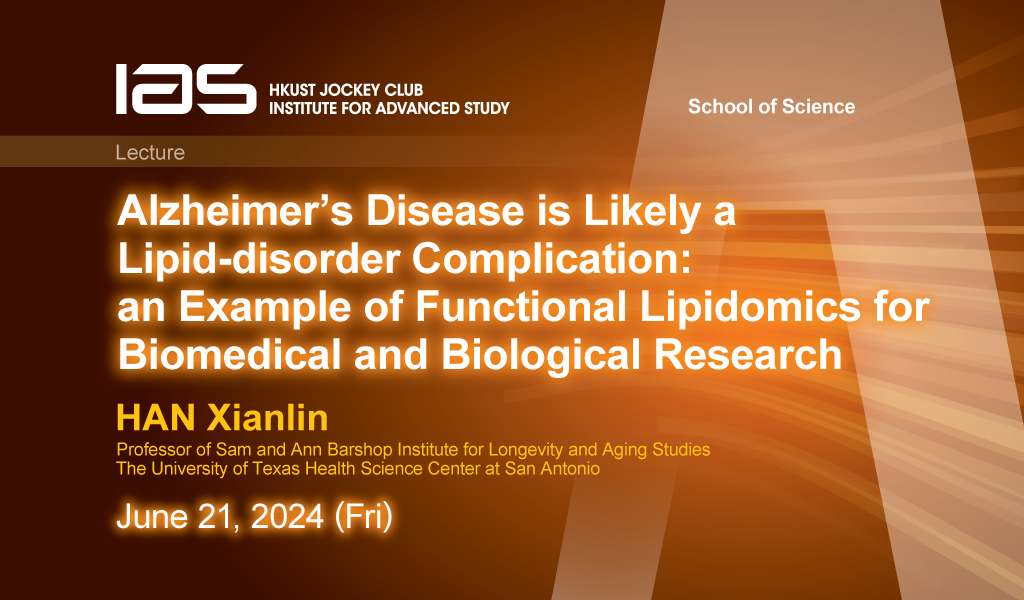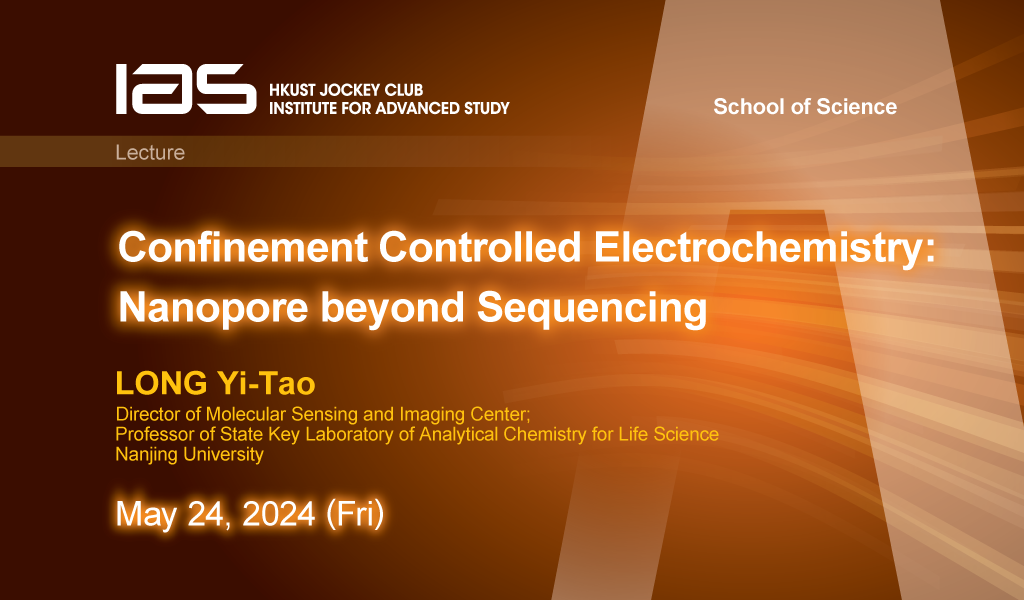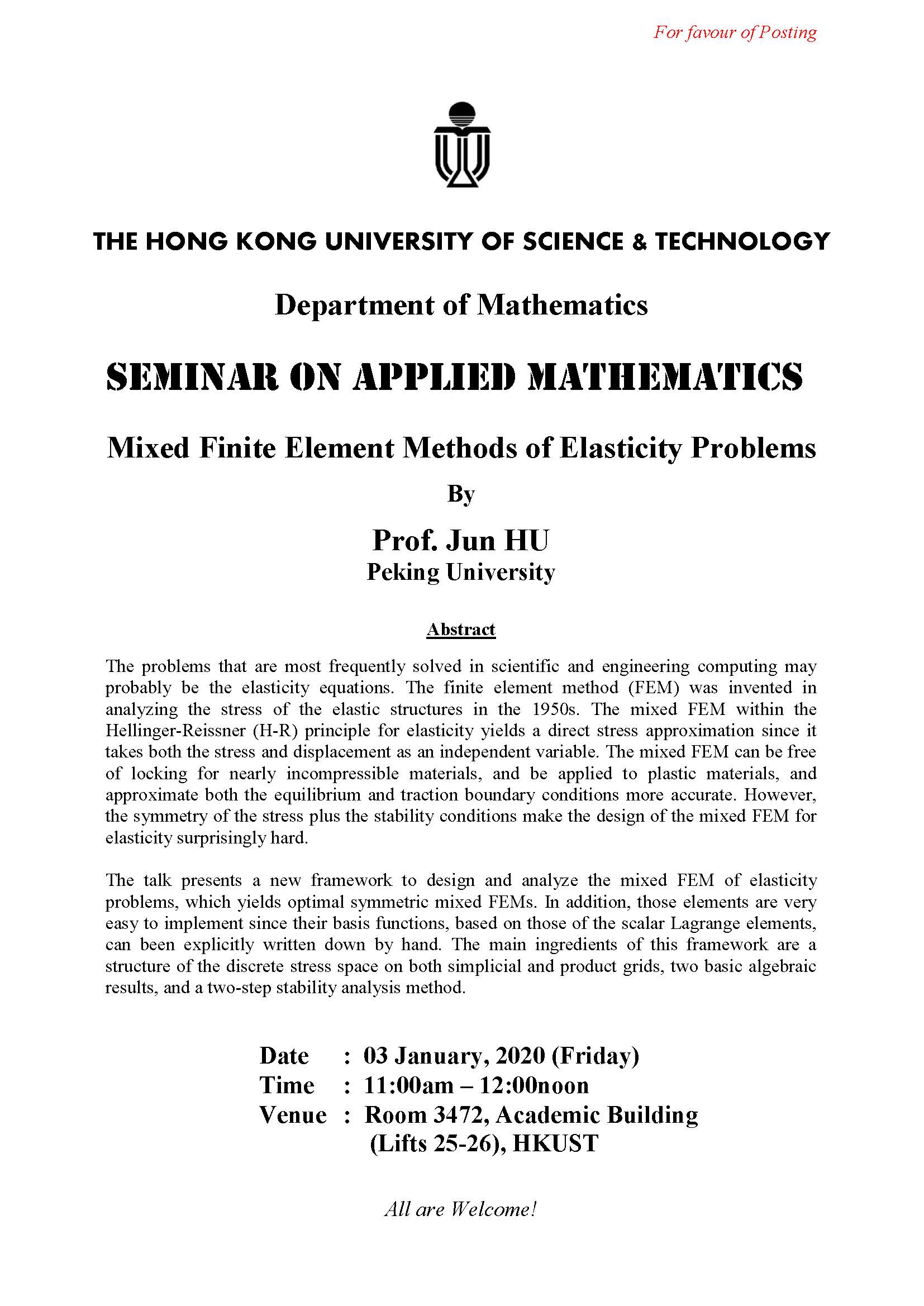The problems that are most frequently solved in scientific and engineering computing may probably be the elasticity equations. The finite element method (FEM) was invented in analyzing the stress of the elastic structures in the 1950s. The mixed FEM within the Hellinger-Reissner (H-R) principle for elasticity yields a direct stress approximation since it takes both the stress and displacement as an independent variable. The mixed FEM can be free of locking for nearly incompressible materials, and be applied to plastic materials, and approximate both the equilibrium and traction boundary conditions more accurate. However, the symmetry of the stress plus the stability conditions make the design of the mixed FEM for elasticity surprisingly hard.
The talk presents a new framework to design and analyze the mixed FEM of elasticity problems, which yields optimal symmetric mixed FEMs. In addition, those elements are very easy to implement since their basis functions, based on those of the scalar Lagrange elements, can been explicitly written down by hand. The main ingredients of this framework are a structure of the discrete stress space on both simplicial and product grids, two basic algebraic results, and a two-step stability analysis method.
The talk presents a new framework to design and analyze the mixed FEM of elasticity problems, which yields optimal symmetric mixed FEMs. In addition, those elements are very easy to implement since their basis functions, based on those of the scalar Lagrange elements, can been explicitly written down by hand. The main ingredients of this framework are a structure of the discrete stress space on both simplicial and product grids, two basic algebraic results, and a two-step stability analysis method.
3 Jan 2020
11am - 12pm

Where
Room 3472, Academic Building (Lifts 25-26)
Speakers/Performers
Prof. Jun HU
Peking University
Peking University
Organizer(S)
Department of Mathematics
Contact/Enquiries
mathseminar@ust.hk
Payment Details
Audience
Alumni, Faculty and Staff, PG Students, UG Students
Language(s)
English
Other Events

21 Jun 2024
Seminar, Lecture, Talk
IAS / School of Science Joint Lecture - Alzheimer’s Disease is Likely a Lipid-disorder Complication: an Example of Functional Lipidomics for Biomedical and Biological Research
Abstract
Functional lipidomics is a frontier in lipidomics research, which identifies changes of cellular lipidomes in disease by lipidomics, uncovers the molecular mechanism(s) leading to the chan...

24 May 2024
Seminar, Lecture, Talk
IAS / School of Science Joint Lecture - Confinement Controlled Electrochemistry: Nanopore beyond Sequencing
Abstract
Nanopore electrochemistry refers to the promising measurement science based on elaborate pore structures, which offers a well-defined geometric confined space to adopt and characterize sin...

